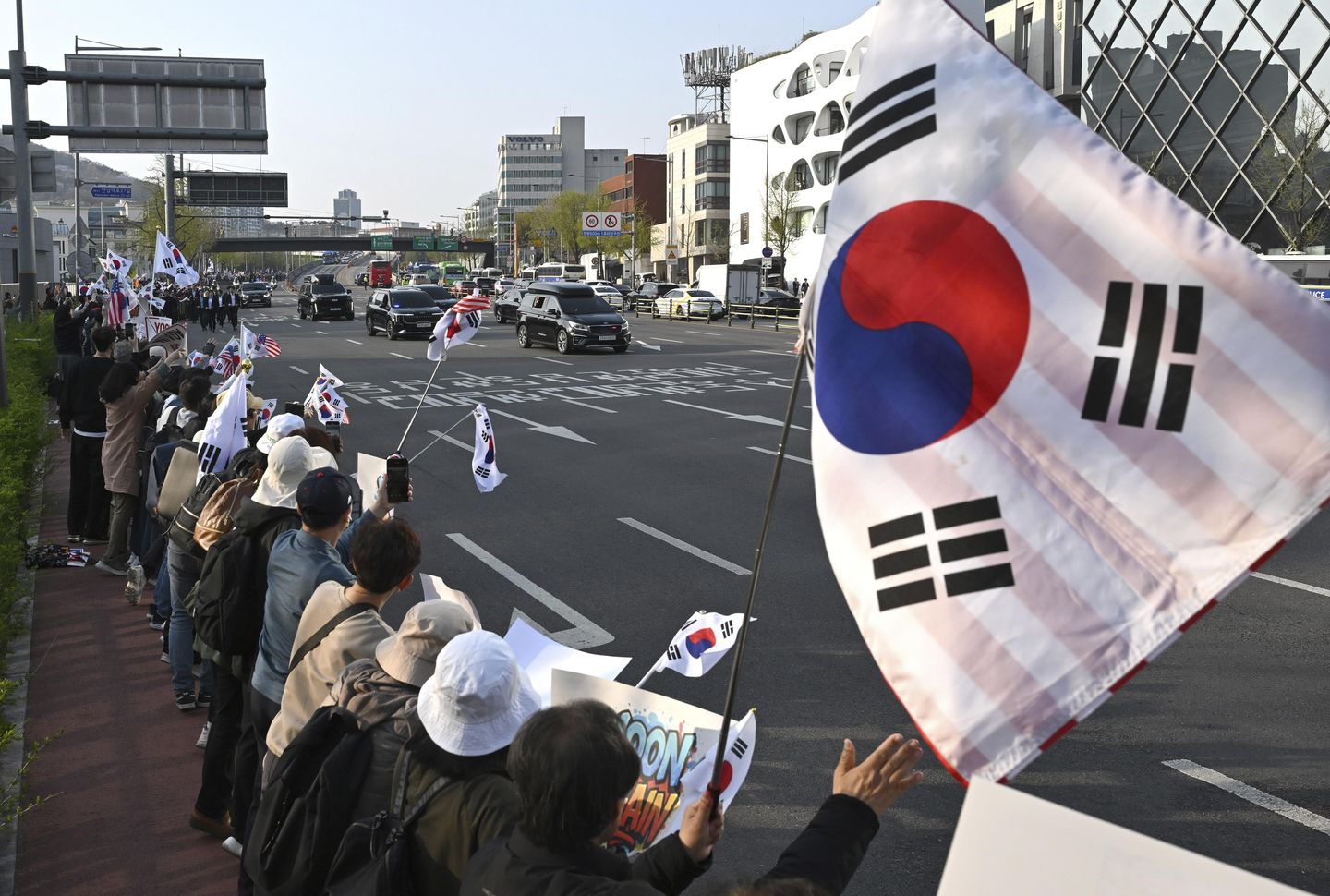
SEOUL, South Korea – Concluding its primary Saturday, South Korea’s ruling People Power Party named its candidate for the country’s upcoming presidential election – but it is far from clear if that winner will actually lead the conservative bloc into battle on June 3.
Kim Moon-soo, a former labor activist and provincial governor turned conservative politician, won the PPP’s presidential nomination Saturday to run for the June 3 election. Seen as a hardliner within the party, he beat out a younger opponent from the PPP’s centrist wing.
His acceptance speech was loaded.
“I will establish strong solidarity with any forces to prevent [opposition candidate] Lee Jae-myung from taking office,” Kim said. “I will pursue this through a process and approach acceptable to both the people and party members.”
Those lines were decoded for the Washington Times by a person familiar with ongoing political machinations in the country’s conservative circles.
The core aim of the PPP campaign is to ensure that the Democratic Party of Korean Presidential Candidate Mr. Lee, who leads in all polls, does not win the presidency.
The reference to building “strong solidarity” with “any forces” suggests that the strategy to achieve the aim will be for Mr. Kim to join forces with Han Duck-soo. Mr. Han, the former prime minister and acting president, resigned Thursday and declared his own candidacy Friday.
Mr. Han is the highest-polling candidate in the anti-Lee camp – a fact well known to Mr. Kim. Mr. Han is not a member of the PPP, yet few believe that he can, or will, run as an independent.
Mr. Han said, in his own declaration speech on Friday, “I will do my utmost to be chosen by our people through the upcoming presidential election.”
A long-term technocrat, trade expert and former ambassador to the U.S.. Mr. Han, 75, has never had a party affiliation and has held ministerial-level positions under both left and right-wing administrations.
Most recently, he was prime minister in the PPP government, and subsequently acting president after President Yoon Suk Yeol was impeached and deposed following his martial law declaration last December.
The political crisis ignited by Mr. Yoon, who is currently facing charges of insurrection and abuse of power, generated the snap election on June 3.
How and whether Mr. Kim and Mr. Han can finesse matters and agree over who will stand for president under a so-called “Big Tent” talking group will be the subject of intense scrutiny in the days ahead.
Candidates for June 3 must be formally registered by May 11, meaning that discussions between Mr. Han, Mr. Kim, and their respective camps, must necessarily be swiftly concluded.
Washington Times understands that the two men’s positions in public opinion polling may be used to decide which man ultimately takes on the candidacy torch.
Per recent polls, only the combined votes of all conservatives, together with a major chunk of undecided voters, would be enough to beat the surging Mr. Lee.
A poll this week found that Mr. Lee had 42 percent approval ratings, Mr. Han 13 percent, and the two PPP primary candidates, a combined total of 15 percent. That gives the conservatives only 28 percent, meaning they need to capture another 14 percent of the undecided electorate just to equal Mr. Lee’s ratings.
It is possible, butit will be an uphill battle: Per the poll, floating voters total 18 percent.
Formerly known as a table-banging leftwing firebrand, Mr. Lee has, in recent months, sought to shift himself and his party rightward toward the political center. However, he remains feared and despised by Korea’s right wing.
Mr. Han’s electoral strategy aims at what may be the Achilles Heel of Mr. Lee and the DPK: He said he would campaign on constitutional reform.
The aim would be to contribute to “the national interest and public welfare through the institutionalization of cooperative governance and effective administration,” Mr. Han said.
Standout points would be to reduce the current single presidential term from five years to three, synchronize the timing of presidential and parliamentary elections, and reinforce the checks and balances between the Presidency and the National Assembly.
Currently, Korea’s political landscape is the scene of a bipartisan, bipolar struggle raging between the conservative-held executive branch and the progressive-held legislative branch.
The impeachment and removal from office of President Yoon via a unanimous decision by the Constitutional Court was a political and moral victory for the DPK, which dominates the National Assembly and led the impeachment process.
However, the DPK’s campaign of impeaching a record number of officials, both before and after President Yoon’s downfall, has generated blowback in terms of both opinion polling and court decisions. Multiple officials – albeit not Mr. Yoon – have been reinstated by court order.
They include Mr. Han. He was booted from his acting presidential seat via a DPK-led impeachment motion, then reinstated. Still, the impeachment barrage continues to fly.
Under hierarchical protocols, Mr. Han was set to be replaced as acting president after his Thursday resignation by Finance Minister Choi Sang-mok. However, Mr. Choi stood down before taking office as an impeachment motion against him gathered steam.
As a result, South Korea is now being led, until June 4, by Education Minister Lee Ju-ho – assuming he, too, is not impeached.












